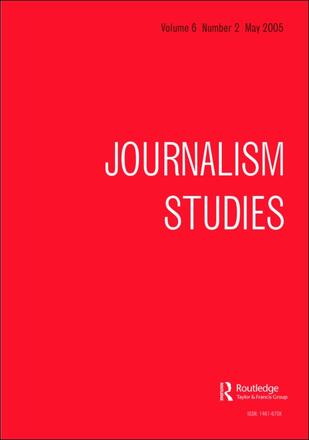
Online news media are perfect platforms for populist communication: together with social media, they allow a more direct connection to the people than traditional media do, and as network media they are are more susceptible to populism. Online news media can voice populist messages themselves (“media populism” or “populism by the media”) or they can allow political actors to diffuse populism through the media (“media complicity”). They can also become a platform for “populist citizen journalism” via their comment sections.
The authors focused their quantitative content analysis of online news coverage and reader comments on immigration-related topics during national election campaigns in the United Kingdom (2015), Switzerland (2015), and France (2017). National elections are prototypical events in which political communication cultures and strategies crystallise and populism is most likely to manifest itself in the polarised environment of electoral competition. All three countries had rather successful right-wing populist parties: UK Independence Party (UKIP), Swiss People’s Party (SVP), and Front National (FN). They are led by influential, divisive leaders and propose restrictive migration policies. The sample choice maximises the heterogeneity of populist communication approaches and political and media contexts in Europe, as the countries differ significantly in their types of political and media systems.
The study investigated six online news outlets per country for a six weeks period before the elections. Four parties from a broad political spectrum (including both presumed populist and non-populist parties) were selected. A sample was built of articles on immigration related to domestic politics or the election campaigns, by using a search string consisting of words related to immigration and the commonly used abbreviations or labels for parties. Four dimensions of populist ideology (people-centrism, anti-elitism, popular sovereignty, and the exclusion of others) were identified together with 12 key populist messages, each assigned to one of the four dimensions of populism.
The authors then tested some hypotheses. The first was that “the extent of populist messages is higher in reader comment sections than in news articles”. Of the three selected countries, the United Kingdom had the biggest share of populist messages, with France in the middle and Switzerland last. Overall, 65% of articles and 34% of individual comments contained at least one key populist message. In order to compare news articles and reader comments as equal units of analysis, the comments were aggregated on the article level: the result was that 87% of comment sections contained at least one populist statement, thus confirming the hypothesis. The reactions of readers were almost identical in the three countries.
The second hypothesis was that “the extent of populist messages is higher in opinion-oriented stories than in straight news items”. Overall, the percentage was just slightly higher, so the hypothesis cannot be supported. In general, only populism by journalists was significantly higher in opinion-oriented stories than in straight news items. In the UK, only populism by political actors was significantly higher in straight news items than in opinion-oriented stories.
The third hypothesis was that “the extent of populist messages by political actors is greater than the extent of such messages by media actors”. In general, there were more articles with populist messages by political actors than by media actors. Looking at the individual countries, this was true especially in the UK, with British journalists often giving space to populist politicians. French journalists were the ones who most commonly made populist comments themselves. Switzerland occupied a middle position, and also had the lowest amount of populism in election news. In all three countries, the extent of populism by citizens in comment sections was higher than the extent of populism by political and media actors.
Of the four identified dimensions of populist ideology, statements related to anti-elitism were most common, followed by people-centrist and exclusionist statements, while sovereignty was less frequently used. Media professionals tended to avoid any exclusionist rhetoric, while citizens were much more inclined to use it.
Authors then look at what journalists and the media do to “moderate populist messages by political speakers”. In most cases, journalists disseminated populist statements by political actors neutrally, without an explicitly positive or negative context. Approximately 10% of articles containing populist messages by political actors provided a favourable setting. They were rarely tempered or criticised.
The authors found populist communication to be quite high in comparison to previous content analyses, but they specify that this result should be interpreted with caution, because of the choice of sample and of the electoral period.
It is socially more acceptable to blame powerful elites than powerless societal out-groups such as refugees. Reader comment sections are more prone to populist communication than news articles are.
There is some evidence that online news media rarely explicitly condemn or criticise populism by political actors during election times, but the research may be missing something, e.g. it may be that journalists provide implicit criticism by quoting the adequate sources.
Tags: United Kingdom France Switzerland Hate speech Ethics of journalism Online news Online mediaThe content of this article can be used according to the terms of Creative Commons: Attribution-NonCommercial 4.0 International (CC BY-NC 4.0) . To do so use the the wording "this article was originally published on the Resource Centre on Media Freedom in Europe" including a direct active link to the original article page.

